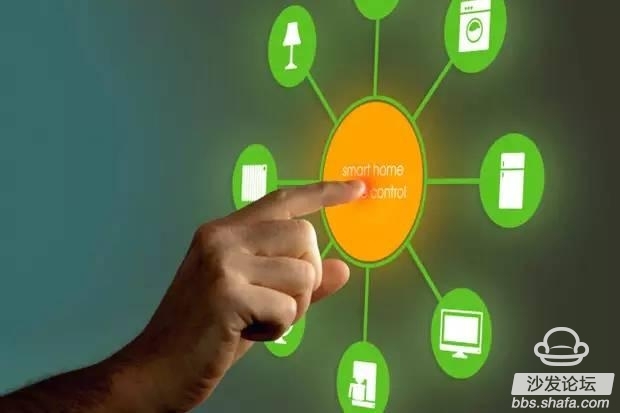US National Intelligence Director James Clapper said on February 9 that future intelligence agencies may use the Internet of Things for monitoring, monitoring, and other purposes.
Can your smart TV monitor you? James Clapper, National Intelligence Director of the United States, said: Of course!
For the first time on February 9, he admitted that intelligence agencies may use the new generation of smart home devices for monitoring. According to Clapper, the growing Internet of Things is a very popular gift for intelligence officers and law enforcement agencies.
Clapper stated in his report to the U.S. Senate on February 9th: “In the future, intelligence agencies may use the Internet of Things for identification, monitoring, monitoring, location tracking, searching for recruitment targets, and obtaining network access rights or user credentials. â€

While smart homes bring convenience, but also bring hidden dangers, intelligence agencies, businesses, thieves, hackers are likely to steal your personal information on the Internet of things. Whether it is an official or unofficial spectator, the Internet of Things is really useful and convenient to them.
Because the Internet of Things stores a large amount of user data, it is not too difficult to obtain the data, as long as you have mastered a server or cloud disk.
At present, there are too many smart devices that can be used for eavesdropping. Some of these composite devices, such as cars, have enough hardware devices to form a very effective monitoring system.
Of course, to obtain data on the Internet of Things, we must find reasonable grounds and obtain legal authorization. Moreover, some companies refuse to cooperate and have a tough attitude when the government requests the submission of user data. But hardware manufacturers (such as smart TVs, smart-refrigerator manufacturers) often default the product and its use to be safe or have no choice at all.
Consumers are often more fragile than they think they are. Intelligence officers are not the only people interested in breaking our high-tech home.
For thieves, knowing when you go out, when you go home, what is in your home, and where you put these things are valuable information. And, if your home's smart devices can make small reports to divorce lawyers, imagine the consequences.
Then take a look at what is in your home that will monitor you:
1 baby monitor and home camera
In August 2014, a baby monitor was invaded in the United States. In addition, although the legislature has tried to legislate to require private companies not to monitor their users, in many cases, every move that helps to analyze users in detail is a "functionality" rather than a defect.
For example, Nest Smart, a smart security camera launched by Google Nest, provides services that store your video information in the cloud and analyze it for you.
2 Smart TVs
Don't worry, there is no manufacturer that has a built-in pinhole camera when it comes to producing smart TVs. However, we often overlooked that smart TVs are mostly built-in microphones, which is a good way to eavesdropping.
For example, Samsung Smart TVs installed with voice recognition software often send various voices to the server for processing.
3 toys

Barbie dolls who can talk and interact with children can also become monitoring tools.
Last year, toy maker VTech suffered a cyber attack that led to the leakage of 6.4 million children's personal information. This is a wake-up call.
In the current market, Barbie dolls who can talk to their children are similar in principle to the Nest Cam. They upload the children's words to the cloud space and answer the questions through the Internet. They use Barbie's speakers to speak out. In addition, as long as they are children's intelligence. Watches and smart phones all have GPS positioning capabilities, which is equivalent to exposing children’s whereabouts.
4 Car equipped with GPS
Once the navigation system and voice control system are controlled by hackers, the intruders can grasp the content and whereabouts of the people in the vehicle. How to do it? It seems that in greeting the arrival of the Internet of Things, you need to think about encrypting your own smart TVs and smart toys. Even if it is not to guard against the FBI, it is also necessary to prevent businesses from freely calling your personal information in the name of analyzing user preferences.
Can your smart TV monitor you? James Clapper, National Intelligence Director of the United States, said: Of course!
For the first time on February 9, he admitted that intelligence agencies may use the new generation of smart home devices for monitoring. According to Clapper, the growing Internet of Things is a very popular gift for intelligence officers and law enforcement agencies.
Clapper stated in his report to the U.S. Senate on February 9th: “In the future, intelligence agencies may use the Internet of Things for identification, monitoring, monitoring, location tracking, searching for recruitment targets, and obtaining network access rights or user credentials. â€

While smart homes bring convenience, but also bring hidden dangers, intelligence agencies, businesses, thieves, hackers are likely to steal your personal information on the Internet of things. Whether it is an official or unofficial spectator, the Internet of Things is really useful and convenient to them.
Because the Internet of Things stores a large amount of user data, it is not too difficult to obtain the data, as long as you have mastered a server or cloud disk.
At present, there are too many smart devices that can be used for eavesdropping. Some of these composite devices, such as cars, have enough hardware devices to form a very effective monitoring system.
Of course, to obtain data on the Internet of Things, we must find reasonable grounds and obtain legal authorization. Moreover, some companies refuse to cooperate and have a tough attitude when the government requests the submission of user data. But hardware manufacturers (such as smart TVs, smart-refrigerator manufacturers) often default the product and its use to be safe or have no choice at all.
Consumers are often more fragile than they think they are. Intelligence officers are not the only people interested in breaking our high-tech home.
For thieves, knowing when you go out, when you go home, what is in your home, and where you put these things are valuable information. And, if your home's smart devices can make small reports to divorce lawyers, imagine the consequences.
Then take a look at what is in your home that will monitor you:
1 baby monitor and home camera
In August 2014, a baby monitor was invaded in the United States. In addition, although the legislature has tried to legislate to require private companies not to monitor their users, in many cases, every move that helps to analyze users in detail is a "functionality" rather than a defect.
For example, Nest Smart, a smart security camera launched by Google Nest, provides services that store your video information in the cloud and analyze it for you.
2 Smart TVs
Don't worry, there is no manufacturer that has a built-in pinhole camera when it comes to producing smart TVs. However, we often overlooked that smart TVs are mostly built-in microphones, which is a good way to eavesdropping.
For example, Samsung Smart TVs installed with voice recognition software often send various voices to the server for processing.
3 toys

Barbie dolls who can talk and interact with children can also become monitoring tools.
Last year, toy maker VTech suffered a cyber attack that led to the leakage of 6.4 million children's personal information. This is a wake-up call.
In the current market, Barbie dolls who can talk to their children are similar in principle to the Nest Cam. They upload the children's words to the cloud space and answer the questions through the Internet. They use Barbie's speakers to speak out. In addition, as long as they are children's intelligence. Watches and smart phones all have GPS positioning capabilities, which is equivalent to exposing children’s whereabouts.
4 Car equipped with GPS
Once the navigation system and voice control system are controlled by hackers, the intruders can grasp the content and whereabouts of the people in the vehicle. How to do it? It seems that in greeting the arrival of the Internet of Things, you need to think about encrypting your own smart TVs and smart toys. Even if it is not to guard against the FBI, it is also necessary to prevent businesses from freely calling your personal information in the name of analyzing user preferences.